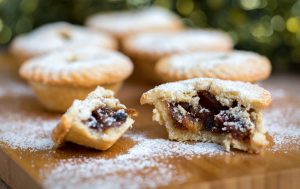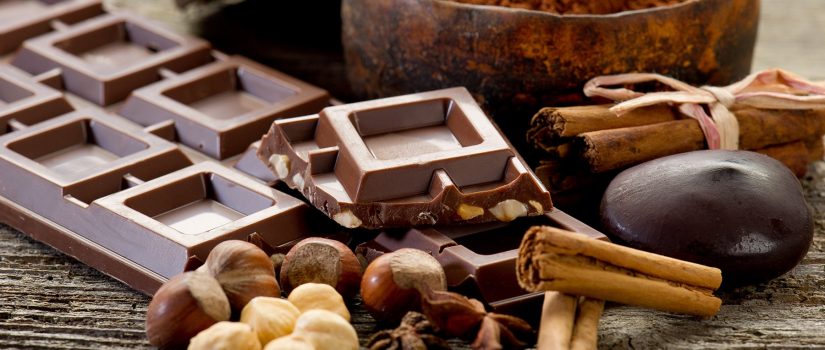Our habit of overindulging over the festive season can leave waistlines bulging and heads pounding, but Christmas and New Year can leave a gauntlet of tasty but potentially toxic festive foods within reach of the nation’s pets.
I personally can remember back to a particular case of a naughty chocolate labrador (ironic!) that presented to me on Christmas Day several years ago for ingesting a lot of dark chocolate. Once he was made to be sick, it became apparent, not only had he ingested dark chocolate which can be fatal in its own right, he’d also ingested approximately one pound of grapes and a hefty amount of chewing gum. The tall and short of it is that this particular dog tried to kill himself three different ways at the same time with festive foods commonly kept in the home around Christmas time. I’ll add that thankfully due to the timely response by his owner, he had no lasting effects from the incident.
Common Hazardous Foods and Decorations Found Around The Festive Home
Below is a helpful list of 10 common festive hazards all pet owners should be aware of. There is also some information about how the various toxic signs manifest. We at Two By Two Veterinary Centre hope this list will help you avoid needing to seek out emergency veterinary care over the festive season.
- Chocolate contains the stimulant Theobromine which, while related to caffeine, will cause seizures and then fatal heart arrhythmias in dogs. Dark chocolate contains higher theobromine concentrations than milk chocolate but milk chocolate can still have the same toxic effects if ingested in large enough quantities.

- Mince Pies & Christmas Pudding can be toxic to dogs by causing kidney failure with delayed-onset a couple of days after ingestion. These staples of the festive season contain raisins, sultanas and/or currants. Grapes also have the same potential for toxicity in dogs and there is no known toxic dose for any of these fresh or dried fruits. This means an owner should seek veterinary assistance at the earliest opportunity if even one raisin is seen to be ingested.
- Blue cheese contains the mould toxin Roquefortine C which can cause fatal seizures in dogs.
- Tinsel & ribbon are particularly nasty when ingested because they can form a difficult-to-diagnose linear foreign body that doesn’t show up well on x-ray. If present, a linear foreign body will cause peritonitis that would be fatal without urgent surgical intervention.
- Wrapping paper has been known to cause intestinal obstruction requiring surgery to remove the offending plug of paper.
- Macadamia nuts are found in many festive snacks and treats. Ingestion rapidly causes a severe illness, that is usually non-fatal but can cause vomiting, weakness, muscle tremors, depression and hyperthermia.
- Garlic, chives and onion can be found in several festive foods such as sausages, gravy and winter soups. All Allium species are toxic to dogs as they cause anaemia when ingested.
- Snowglobes can contain small quantities of ethylene glycol (antifreeze) which is exquisitely toxic when ingested by cats, who (un)helpfully seem to love the taste.
- Lilies from the Lilium or Hemerocallis species are very dangerous for cats, causing sudden, irreversible kidney failure. Eating just a couple of leaves, small quantities of pollen or even drinking water from a vase containing them can be fatal.
- Alcohol can cause severe liver and brain toxicity in dogs and cats. Even ingestion of small quantities can cause toxicity requiring veterinary assistance.
On that cheerful note, I’d like to take the opportunity to wish all of our clients and blog readership a happy and healthy festive holiday season. I sincerely hope to see you back in the new year. Two By Two Veterinary Centre will be closed with the exception of emergency veterinary provision on Christmas Day, Boxing Day and New Years Day. In between Boxing Day and New Years Day, we will resume our normal opening times.
Andrew Monchar, Director, Two By Two Veterinary Centre

